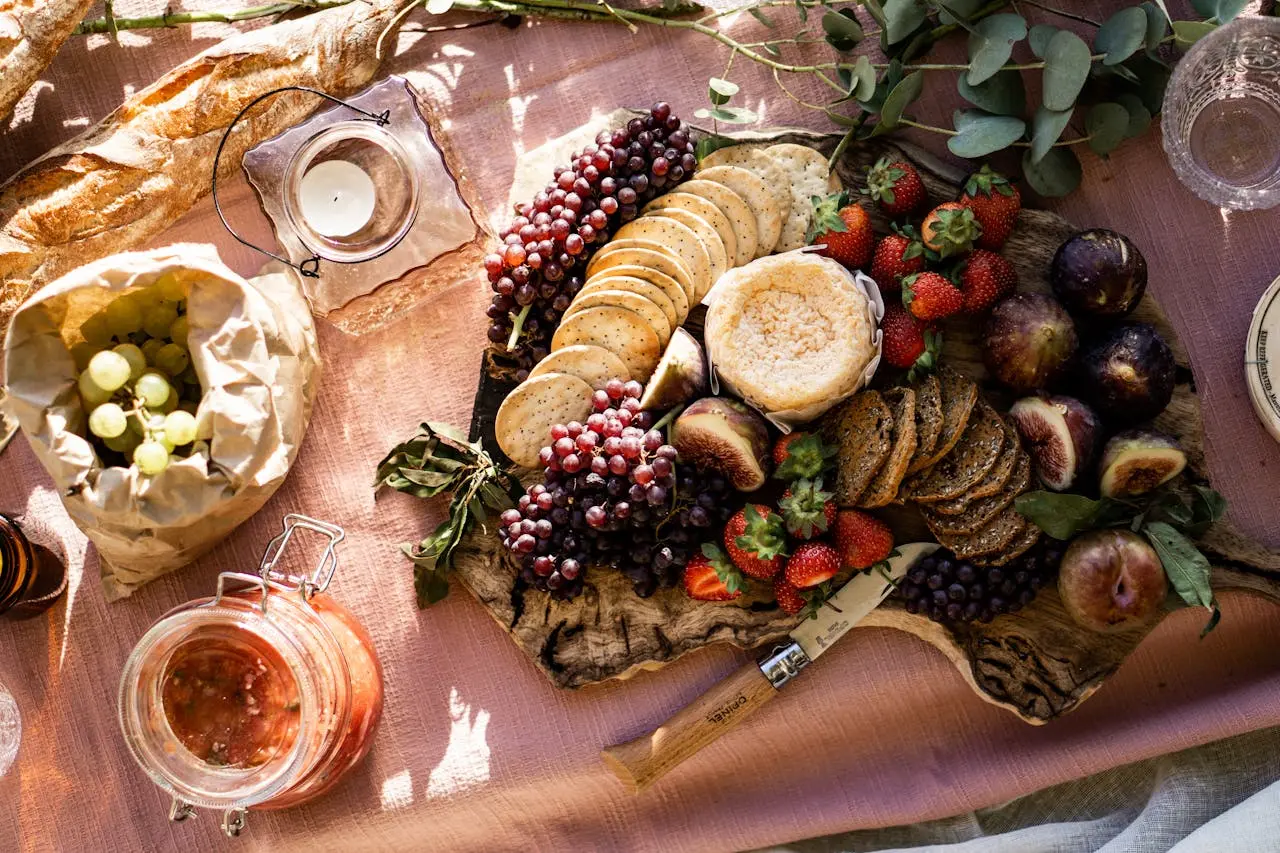As the world becomes increasingly aware of the pressing need to adopt sustainable practices, gatherings like BBQs and picnics provide an excellent opportunity to make eco-friendly choices.
Going green doesn't mean sacrificing flavor or fun; with thoughtful planning and a few innovative ideas, you can host a memorable, environmentally conscious event that leaves minimal impact on the planet.
In this article, we delve into sustainable BBQ and picnic ideas that will not only make your gathering a hit but will also strengthen your commitment to living a greener lifestyle. From eco-friendly food options and reusable utensils to waste management and organic decorations, we've got everything covered.
Planning Your Green BBQ or Picnic
1. Choose an Eco-Friendly Location
Opt for local parks, community gardens, or your backyard. Choosing a location close to home reduces carbon emissions associated with travel and encourages support for community spaces.
2. Send Digital Invitations
Save paper by sending evites through email or social media platforms. Websites like Evite and Paperless Post offer beautiful designs that get your message across without the environmental cost of paper invitations.
3. Opt for Public Transportation or Carpools
Encourage your guests to carpool, use public transport, or even bike to the location. This reduces the carbon footprint and can make for an enjoyable shared experience.
Sustainable Food Choices
1. Focus on Plant-Based Options
Plant-based diets have a significantly lower carbon footprint compared to meat-based diets. Offer an array of delicious vegetarian options such as grilled vegetables, plant-based burgers, and salads.
Example: Grilled portobello mushrooms, veggie kebabs with bell peppers, zucchinis, and cherry tomatoes, or a hearty quinoa salad with seasonal veggies.
2. Source Locally and Seasonally
Purchase ingredients from local farmers' markets or co-ops. Locally sourced food is fresher, tastier, and significantly reduces transportation emissions.
Example: A fresh fruit platter with seasonal picks like strawberries, blueberries, and peaches.
3. Sustainable Meat Options
If you do serve meat, opt for responsibly sourced options like organic, grass-fed beef or free-range chicken. Use smaller portions to complement plant-based dishes, reducing the overall environmental impact.
Zero-Waste Utensils and Serving Ware
1. Use Reusable or Compostable Plates and Cutlery
Invest in a set of reusable plates, cups, and silverware. Stainless steel, bamboo, or durable aluminum options are great choices. If you prefer disposable items, choose compostable materials made from corn, wheat straw, or palm leaves.
Example: Reusable stainless steel utensils and bamboo plates.
2. Cloth Napkins over Paper
Cloth napkins can be washed and reused multiple times, unlike paper napkins that add to waste.
3. Bring Your Own Cup (BYOC)
Encourage guests to bring their own cups or bottles to minimize waste. It could also be a fun opportunity to show off some unique and personalized drinkware.
Eco-Conscious Cooking Practices
1. Choose Natural Charcoal or Gas Grills
Natural charcoal or lump charcoal burns cleaner than conventional charcoal briquettes. Alternatively, gas grills emit fewer particulates and are more energy-efficient.
2. Solar-Powered Options
Consider using solar-powered grills and ovens. While these might require a bit more planning due to longer cooking times, they offer a fantastic, completely green cooking method.
Waste Management
1. Set Up a Compost Bin
Provide a clearly labeled compost bin for food scraps. Composting reduces landfill waste and produces nutrient-rich soil for gardening.
2. Recycling Stations
Have separate bins for recyclables like cans, bottles, and cardboard. Make sure the bins are clearly marked to guide your guests.
3. Leftover Strategy
Plan ahead for leftovers. Encourage guests to bring their own containers to take home extra food. This reduces waste and extends the enjoyment of your delicious meals.
Green Decorations
1. Natural Decor
Use nature-inspired decorations like flowers, plants, and leaves. These elements create an aesthetically pleasing environment and are fully compostable.
Example: DIY flower centerpieces with wildflowers in glass jars.
2. DIY Upcycled Decor
Create decorations from upcycled materials. Old bottles can become vases, and scraps of fabric can be sewn into bunting or tablecloths.
3. Solar or LED Lighting
For late-night gatherings, use solar-powered garden lights or energy-efficient LED string lights. These options are both eco-friendly and create a cozy atmosphere.
Fun Eco-Friendly Activities
1. Nature Scavenger Hunt
Organize a scavenger hunt that encourages guests to explore and appreciate the local environment. This is both fun and educational, particularly for younger attendees.
2. Eco-Friendly Games
Classic outdoor games like frisbee, sack races, or tug-of-war don't require any additional resources and are endlessly entertaining.
Conclusion
Hosting a green BBQ or picnic is an enjoyable and rewarding venture that aligns perfectly with eco-conscious living. By planning thoughtfully, choosing sustainable food and decorations, and implementing effective waste management strategies, you can minimize the environmental impact of your events without compromising on fun or flavor.
By setting an example, you'll not only have a memorable gathering but also inspire others to adopt similar practices in their own lives. So, gather your friends and family, fire up that eco-friendly grill, and enjoy an outing that's as kind to the Earth as it is delicious and entertaining.






















